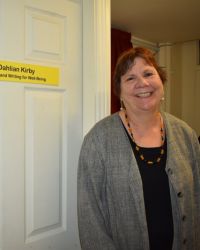How to be counselled - a beginners guide
When a person decides to go and see a counsellor, chances are that they are not feeling at their strongest. It may well have taken a long time to decide to seek help. Sometimes a person doesn't really want to see a counsellor but their loved ones keep telling them they ought to. Often people don't actually know what a counsellor does. If you or someone you know relates to this, please read on. This is a brief introduction on how to be counselled.
First, finding a counsellor. You may want the nearest or you may want someone who is very experienced. Decide what the priorities are and try to find someone who fits them. When you make an appointment try to speak to them on the phone. If they don't sound interested in you, look for another counsellor.
The counsellor will do their best not to judge you. Try to give them the same respect if you can. Their age, gender or the smartness of their shoes won't make them better or worse than another counsellor. If you feel uncomfortable at first, give the situation time. It is normal and quite common to feel shy, self conscious or even angry. A good counsellor will recognise this, and will give you time.
Sometimes we find ourselves getting angry with people who help us face problems and worries, this can happen in counselling. Don't blame the counsellor for your situation. Don't blame yourself either, see if they can help you make changes and move on. At your own pace.
If however you have tried to get on with a counsellor and it just doesn't feel right, it probably isn't. In this case end your relationship and look for another counsellor.
How much should you share with this person who is initially a stranger? As much as you feel comfortable with, then if you feel it will help, as much as you need to. The counsellor will help you with this, gently challenging when they feel it will be useful, supporting you when you feel sad or angry or ashamed or frightened.
It might be hard to tell the truth of a situation. If you exaggerate or lie it won't help you. If you can, be brave and give an honest account of what happened or how you feel. If in later weeks you want to add to what you said or to change what you said you felt, that's fine.
It is important to remember that counsellors have been counselled. A good counsellor will remember how that felt and will do their best to make you feel at ease. Most counsellors will be more or less un-shockable, and won't be judging you. If you meet the rare counsellor who isn't strong enough to work with you, end the relationship and find another counsellor.
Don't worry that your counsellor will be harmed or upset by what you say about your life, they will have a supervisor who will support them and will also have various techniques to keep themselves strong. If you ask a counsellor to share their views, opinions or details of their personal life and they don't, that's because the session is about you, not them. That's what is so amazing about being counselled.
Sometimes problems can seem overwhelming, it can be useful to write down your problems and ask your therapist to help you prioritise. You may see you counsellor every week, but you may prefer to see them twice a month. Work out what is best for you.
You have fifty minutes of a person being there for you- not judging, not interrupting, not telling you that your problems are trivial or too vast. Being counselled involves being a little bit brave at first. Going to see a counsellor is a way of taking control, a way of moving towards a better future. It almost always works. If it doesn't, reflect for a few weeks on why you think it didn't work. Then find yourself the right counsellor. The right counsellor will help you towards having the life you want.

Find a therapist dealing with Abuse
All therapists are verified professionals






